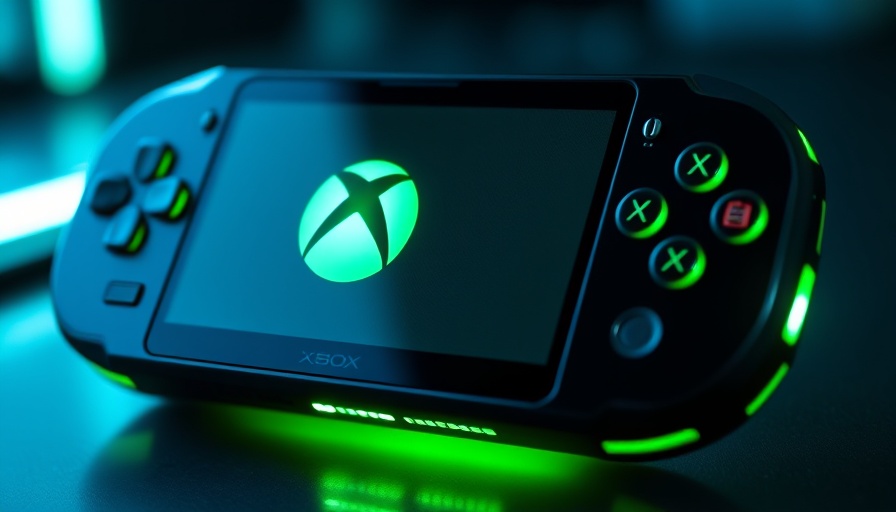
Microsoft's Move into Handheld Gaming: A Reaction to Market Demands
In a surprising twist, Microsoft appears ready to launch its highly-anticipated Xbox handheld console, code-named "Keenan." In a landscape dominated by formidable rivals like Valve’s Steam Deck, this new handheld aims to create a unique Xbox gaming experience, reminiscent of Xbox's traditional design. As the company’s gaming chief Phil Spencer has highlighted, the goal is to ensure that handheld gaming PCs feel unmistakably part of the Xbox family.
The Current Landscape of Handheld Consoles
Despite reports suggesting that there are already too many handheld consoles on the market, only about six million have been sold as of February this year. This figure is relatively minor compared to the whopping 273 million PCs expected to sell, indicating that this segment is still in its infancy. The market seems hungry for innovation, and Microsoft might be stepping in at just the right time to carve its niche.
Microsoft's Strategic Shift: Learning from Past Mistakes
Microsoft’s previous entries into the mobile space, notably with the Windows Phone and dual-screen smartphones, left many wondering about its capabilities in handheld gaming. With "Keenan," the company has a chance to rectify its past missteps by leveraging existing technologies and frameworks that have proven successful, such as the Xbox app for Windows. This integration could potentially offer a seamless cloud gaming experience, combining the best of both Xbox and Windows.
A Collaborative Approach
Rather than building the handheld from scratch, Microsoft is reportedly collaborating with established PC makers—a move that could lend credibility and experience to the project. This decision suggests a more measured, business-savvy strategy, paving the way for a product that could meet consumer expectations while staying true to Xbox's brand pride.
The Road Ahead: What Can We Expect?
Spencer’s initial projections hinted at a longer timeline for the Xbox handheld, but with new information suggesting a launch as early as 2025, it raises exciting possibilities for gamers. This new device could represent Microsoft's foray into an arena previously dominated by Nintendo and Sony, setting the stage for an engaging competition in handheld gaming. The focus on cloud technology and integration with Xbox’s gaming ecosystem is a strategic advantage that may redefine how players experience gaming on-the-go.
As Microsoft ventures into this uncharted territory, small and medium-sized business owners and decision-makers should pay close attention. The evolution of gaming technology and the potential impact on workforce flexibility could create new opportunities for innovation and productivity in various sectors. The handheld gaming landscape is expanding, and the arrival of Microsoft's Xbox handheld could herald a new era for gaming enthusiasts and professionals alike.
 Add Row
Add Row  Add
Add 










 Add Row
Add Row  Add
Add 

Write A Comment